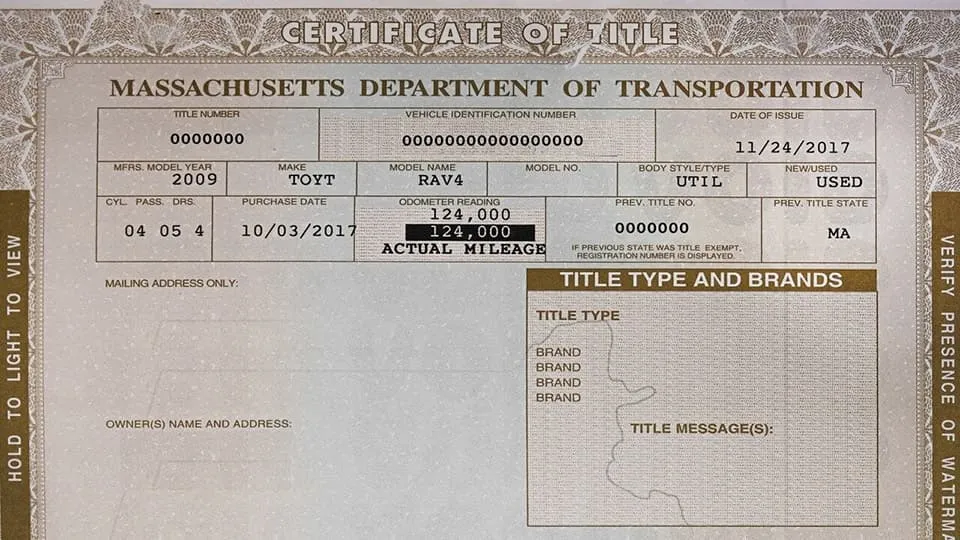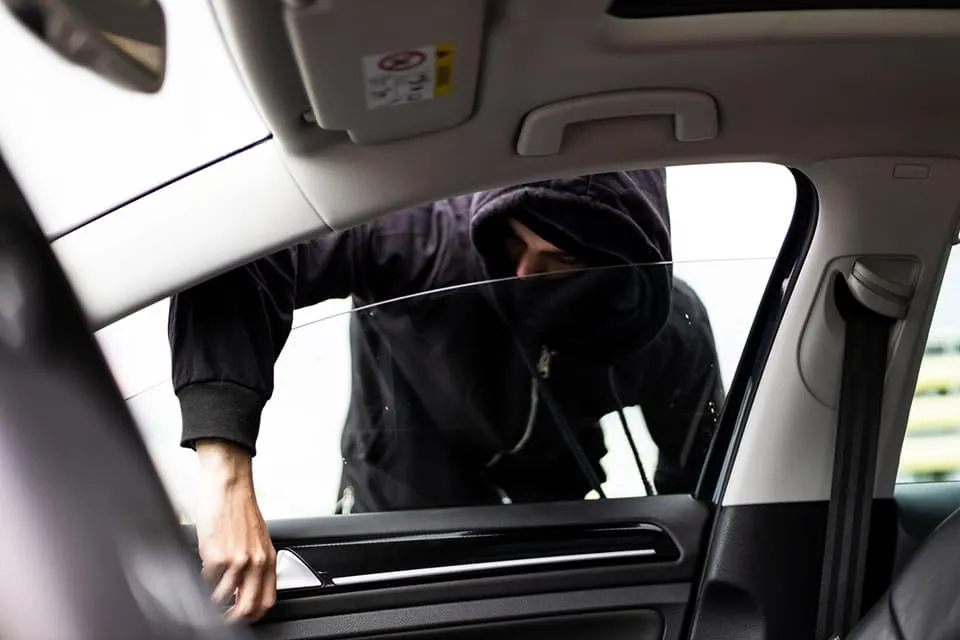

Your car's title is essential to proving legitimate ownership, and losing one can come with significant legal consequences. Luckily, a car title replacement is easy at the Department of Motor Vehicles.
If you live in a title-holding state and purchased your car on loan, the process can be even more straightforward. A title-holding state requires lienholders to hold on to your title for you until the loan is paid off. You are still the registered owner, but the burden of holding on to and keeping track of a car title is not on you.
There are several states that do not require title-holding, including:
If you reside anywhere else in the United States, you don't need to worry about your car title until you complete the loan-paying process. If you do end up losing or having your title stolen after it's in your possession, you can follow the same procedures above to replace your car title.

If your car title is stolen, the first thing you should do is file a report with the police. Car titles can be used by forgeries and other criminals for various fraudulent activities. For example, scammers can forge false information onto your car title and pass it off as identifying documents for a stolen vehicle.
Criminals can also use the title to register your vehicle to their name, so the local DOL or DMV will believe the car is theirs. While law enforcement agents may sort these out eventually, you could lose time and money waiting for your title or vehicle to be returned.
Because of its higher value, a clean title is more likely to be stolen. Therefore, it is always best to ensure clean titles are stored carefully, so scammers have a more challenging time getting your high-value documents.
Misplacing or losing your car's title is nothing to be ashamed of. Considering that most licensing departments recommend you keep the title outside of the vehicle, these documents can often get lost amongst other paperwork stored in your home.
Fortunately, the process for car title replacement is simple and almost identical to replacing a stolen license; the only difference is you don't need to make a report to the police.
The three steps to replacing your car's title are simple:
Filling out your Affidavit of Loss form, which is specifically required in Washington state, involves providing your full legal name, current address, and driver's license number.
These details include things like the license plate number and VIN, as well as the year, make, and model. If you don't have certain data about your vehicle on hand, you can use a vehicle search engine to find this information.
You'll also need a photocopy of your ID and insurance card. If you have a loan for your vehicle, you may need to provide any financial paperwork concerning that loan or active lien. In some states, you may have to provide an inspection slip, notary stamp, and proof of paid property taxes.
Once you've filled out the form for a car title replacement and double-checked it for accuracy, you'll need to put your signature at the bottom along with the current date. This is just as important as providing other pieces of your personal information; your signature helps prove your identity and shows that you authorize the form's purpose.
While not all states require an Affidavit of Loss to be notarized, you'll want to check online whether or not your local DMV or DOL requires it. If you do need the document notarized, the process is simple. You can find a notary public online who will stamp and sign the document, often electronically. Once complete, the form will be ready for delivery.

Many states don't allow the electronic submission of an Affidavit of Loss, so you will likely have to mail or drop off the document personally for a lost car title replacement.
You will also need to pay the replacement title fee, which varies from state to state. This process is usually referred to as a "duplicate title request". This fee can range from $25 to $80 and includes handling fees.
Once all fees are paid, and all documents are submitted, your duplicate car title should arrive in the mail. This can take several weeks, depending on where you live and how backed up your DMV is. Your title may arrive in a much shorter time, but there isn't much you can do to track this. Don't worry; your replacement car title is on its way!